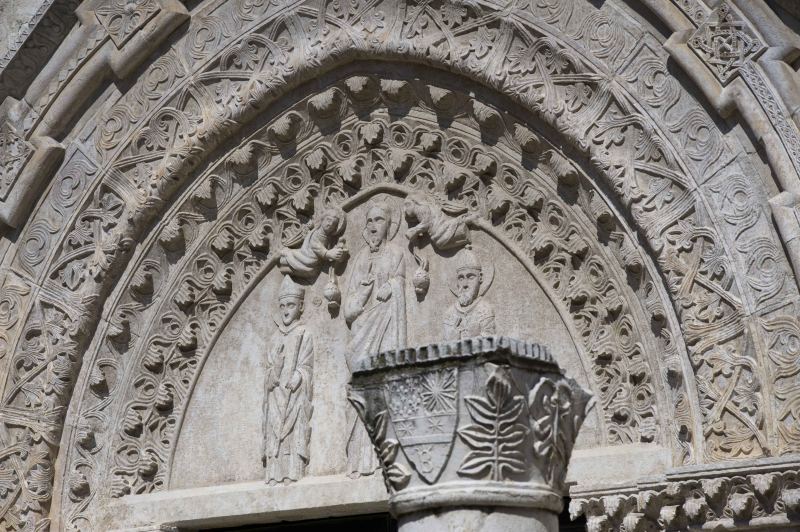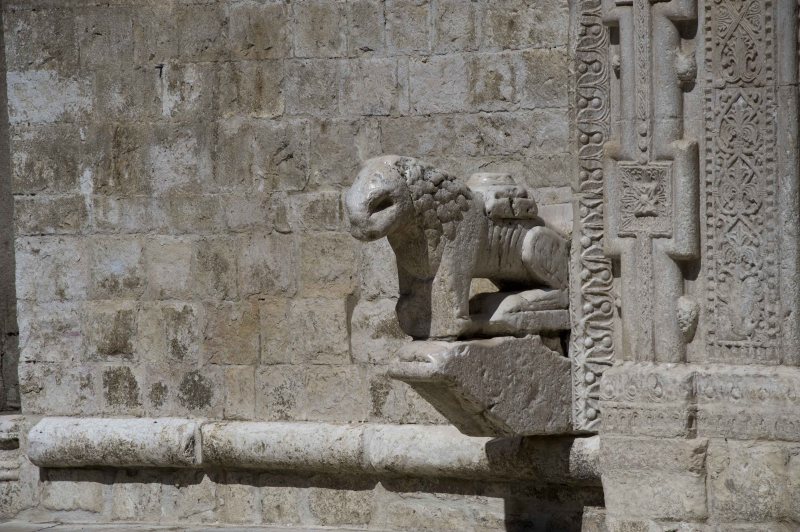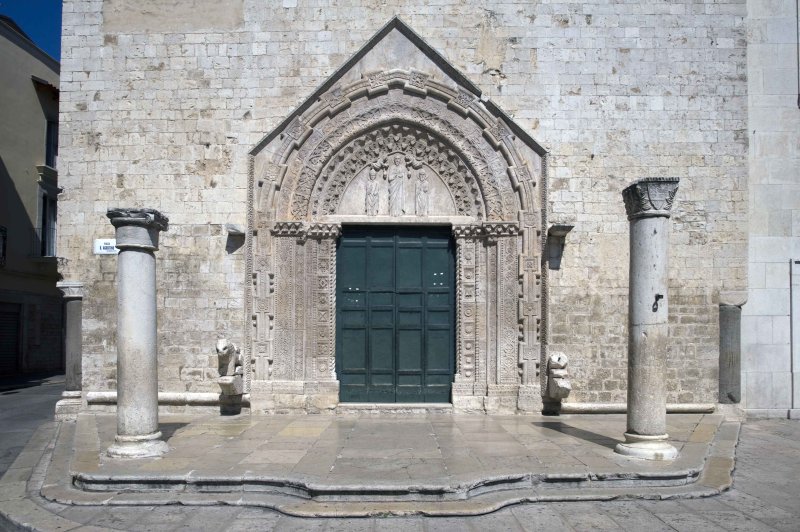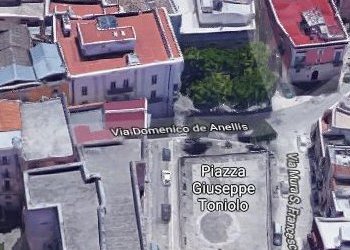CHURCH OF SANT'AGOSTINO
The church of S. Agostino, dedicated to S. Leonardo during the period in which it was property of the Teutonic Knights (1230-1358), is famous for the beautiful richly decorated portal, which documents the artistic evolution toward the gothic style of the 13th-century sculpture. The decoration consists of concentric bands (archivolt) around the central lunette, in which the figures of Christ between San Leonardo and San Nicola and two angels can be recognised. The presence of two column-bearing lions (which however lack the columns) next to the door posts suggests the presence of a prothyrum (porch), which probably remained incomplete or was demolished over the centuries. The hypothesis of the presence of a prothyrum in front of the main entrance is also supported by the fact that on top of one of the two columns standing in the parvis is the coat of arms of the Del Balzo family, lords of Andria in the 14th and 15th centuries. Other coat of arms, among which that of the Teutonic Knights, the lilied shield of the royal Anjou family, the ox of architect Sergio Bove from Bitonto, are visible on the lateral portal of the church, as a proof of the manifold influences on the religious complex, which included the church as well as the convent.
Run for a short time by the Benedictines, the convent complex was then entrusted by duke Francesco I Del Balzo to the Augustinians, who dedicated the church to S. Agostino, their founder.
The present church features inside a baroque decoration due to the 18th -century refurbishments. In the former convent, which is now used as a public library, part of the structures of the interior cloister and architectural elements of the earliest phases of the complex can be seen (pointed arches and double-lancet windows of Gothic style). Especially noteworthy are the remarkable figured capitals of the exterior covered cloister, which is now used as a food market.






